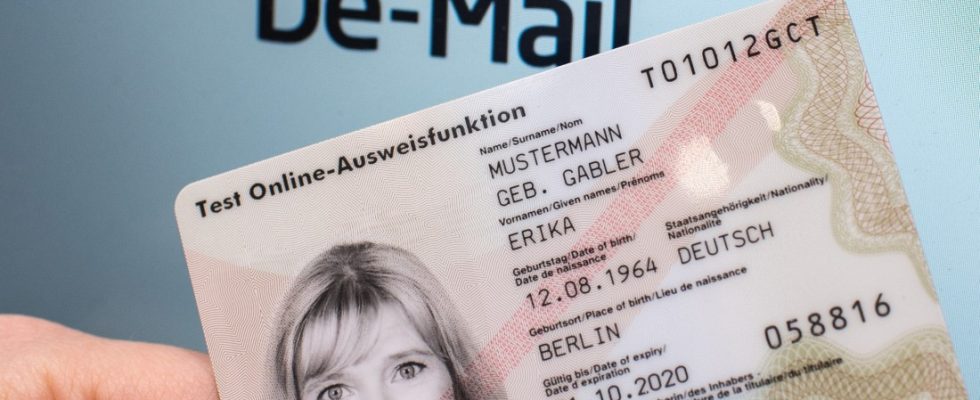From opening an account at the bank to taking out insurance to dealing with authorities – not much will be possible in the future without electronic identities (eID). They are the key to digital services from the state and business. While other countries are already using ID solutions widely, the online identification function of the ID card, i.e. the German eID, is still little used. The answer to a small question from the CDU/CSU parliamentary group, which has been submitted to the SZ, provides reasons for this.
The responsible Federal Ministry of the Interior (BMI) wrote that as of October 31, 2023, around 56.57 million ID cards with activated online ID were in circulation – that is 92 percent of all ID cards. However, only 14 percent of citizens use the online ID function, like an annual one Study by the D21 initiative revealed.
This has to do with the lack of use cases and therefore everyday relevance, said Ronnie Schrumpf, who takes care of identity management at ING Germany. However, without everyday relevance, no one will be able to create use cases. “We have been in this constant loop for 14 years.”
The E-Perso was introduced in 2010, the eID in credit card format was and is a special German method. Scandinavian states and Austria cooperated closely with the banking sector and relied on processes known from everyday life, such as approval via an SMS TAN. There are now digital solutions available via smartphones.
Lots of letters that cost a lot of money
Banal but with serious consequences: Because the E-Perso is used so rarely, many people forget their PIN. Politicians wanted to take countermeasures. A free pin reset service launched in February 2022. This was a letter that is delivered using the secure Post-Ident procedure – and therefore costs the state dearly.
Almost overnight, the BMI discontinued the service at the turn of the year. Since then, citizens can only have their PIN reset at the office. The BMI’s justification in the small inquiry: “A continuation in January 2024 would have led to incalculable costs, as it was not clear in advance how many pin reset letters would be ordered in January 2024 and this was not justifiable in view of the provisional budget management.”
The average gross cost per letter in the period from February 2022 to December 2023 was 14.29 euros, the ministry calculated. A total of around 29.1 million euros was spent on the service, with the most letters being sent and the highest costs incurred in March and April of last year (around 4.6 and 2.7 million euros).
The reason for these peaks: From March 1, 2023, young people were able to receive the culture pass budget and from March 15, students were able to apply for the energy price flat rate. The eID was required for both.
The small inquiry shows that the state has shockingly little data. The federal government has no information about how many people use E-Perso in total. In addition, the BMI did not survey the 40 percent of users who applied for a new PIN but allowed the letter and the one-time code it contained to expire. This number became known at the turn of the year. Through this practice, many millions were sunk without any concrete benefit.
The BMI suspects that in many cases the registration address stored on the chip does not match the actual place of residence, meaning that letters never reached the applicants. A new registration address is not automatically applied to the E-Perso. The chip on the ID card works like a credit card: the data only flows with the appropriate device. Citizens therefore have to go to the office if they want to update their eID. One Smartphone solution The process is just now being rolled out nationwide.
Banks want clarity soon and the reset service back as quickly as possible. Because the clock is ticking: the so-called EUDI wallet, a digital exchange for documents and certificates within Europe, should be ready by 2026. For the initial setup, citizens will “probably” need the E-Perso, including a pin, explained the BMI.
“Within the next two years we have to be clear about how citizens get their pin,” said Markus Reichel, responsible rapporteur for the topic in the Union parliamentary group. The fact that millions of citizens now have to go to office again is a “method from the Stone Age”.
“Why can banks easily send a pin while the state cannot do so for the eID?” From Reichel’s point of view, there is a need for user-friendly solutions that are still secure. The E-Perso must now get to the people quickly, “so that many citizens can use the EUDI wallet later.”

